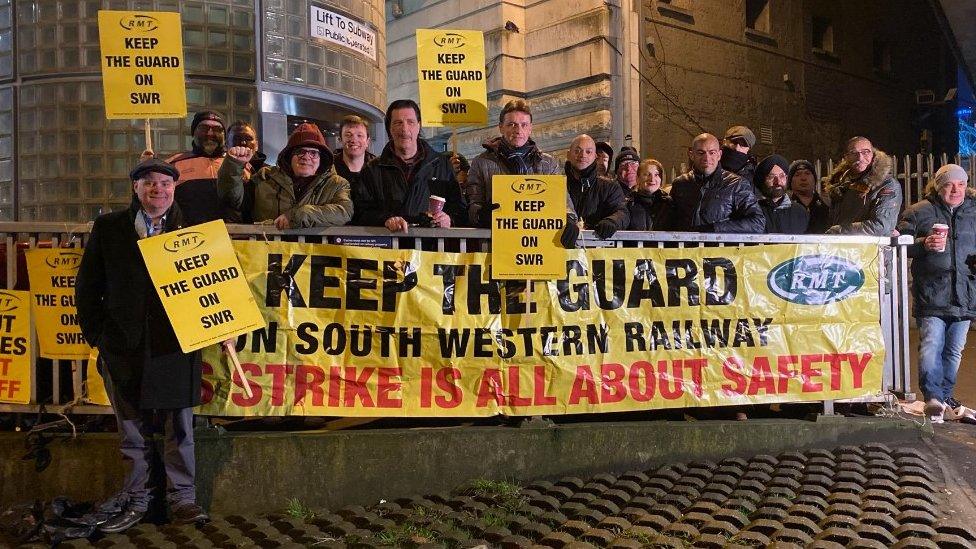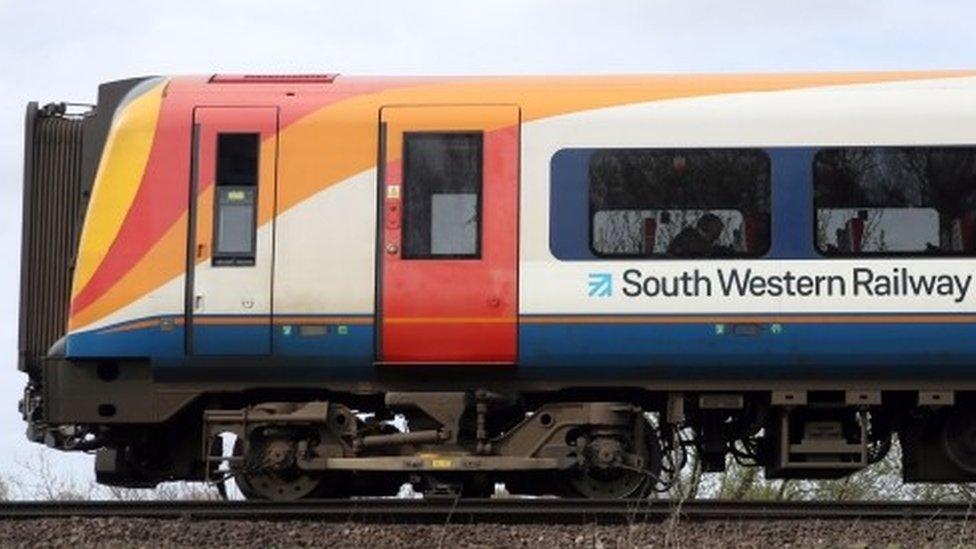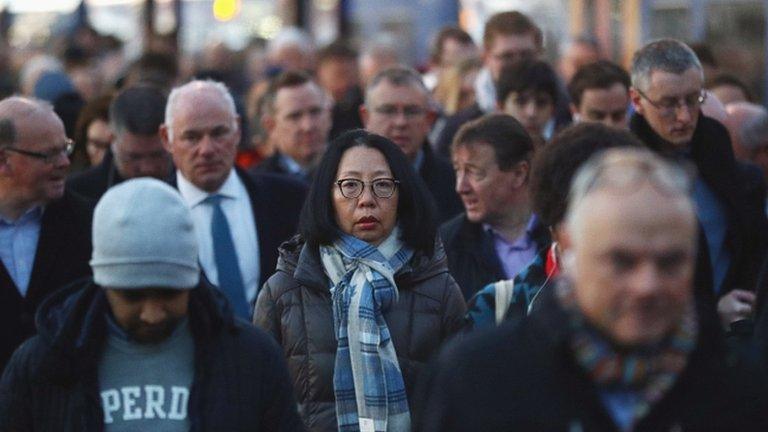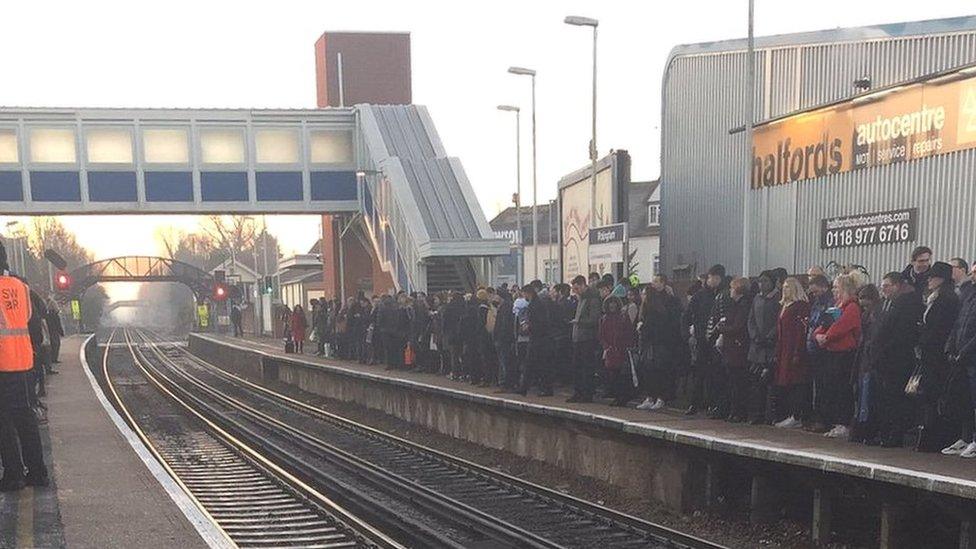South Western Railway train guard dispute finally ends
- Published

RMT union members staged 74 days of strikes between 2017 and 2020
A long-running dispute over the role of train guards which caused widespread passenger disruption on South Western Railway (SWR) has ended.
The Rail, Maritime and Transport (RMT) union held 74 days of strikes between 2017 and 2020.
Its members had fought plans for drivers to operate the doors on new trains, instead of guards.
But it has now accepted the change after SWR guaranteed a guard would still be put on every passenger train.
Disruption caused by industrial action typically resulted in 800 trains being cancelled on every strike day, affecting tens of thousands of passengers each time.
The last strike came in January last year, but the dispute was still unresolved when the pandemic struck.
SWR has ordered 90 new trains designed to work without a guard and the RMT has accepted drivers will operate the doors.

Analysis
By Paul Clifton, BBC South transport correspondent
Both sides have compromised - they have agreed to changes they previously said were red lines they could not cross.
In return for a fundamental change in what guards do, the union has achieved what it called the "guard guarantee" of someone on every train.
Guards will spend more time on customer service, the company thinks performance will improve, and the union is dropping previous claims that this compromises safety.
Both sides are keeping this low key. The union is in the middle of choosing a new leader and the train company's emergency government contract is about to run out.
But whatever your view, the end of this long-running but dormant dispute is welcome news for passengers.

In addition to a guarantee of a guard on every passenger train, a copy of the agreement seen by the BBC includes a reduction in working hours for guards - down from 42 to 37 hours a week.
It will mean their pay effectively goes up by £1.50 an hour.
Guards have voted heavily in favour of the deal - but the union has chosen not to publicise the figures.
The company operates routes between London Waterloo, Reading, Bristol, Exeter, Weymouth and Portsmouth, as well as on the Isle of Wight.
In a statement, SWR said: "This agreement is an important milestone on our journey to providing an even better experience for our customers, while providing certainty for our colleagues and the communities we serve.
"All parties can now move on from the disruption this dispute has caused and focus on welcoming our customers back to a more punctual, reliable and customer-friendly railway in the coming months."

Follow BBC South on Facebook, external, Twitter, external, or Instagram, external. Send your story ideas to south.newsonline@bbc.co.uk, external.
- Published3 March 2020

- Published24 February 2020

- Published18 February 2020

- Published23 January 2020

- Published22 January 2020

- Published7 January 2020

- Published2 December 2019
